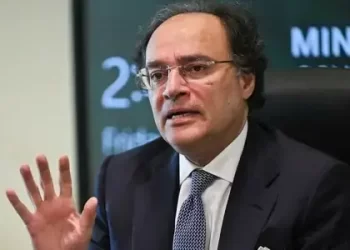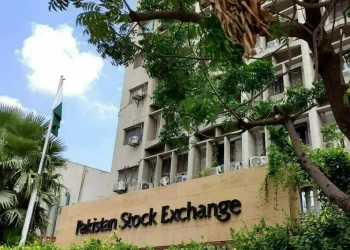FRANKFURT: The European Central Bank kept interest rates unchanged as expected on Thursday, with its president Christine Lagarde saying a move in September was “wide open”.
The ECB cut rates from record highs last month in a move that even some of its policymakers considered rushed after progress on lowering inflation to its 2% target stalled. With domestic inflation still stubbornly high and wage growth sticky, the bank is likely to be more cautious about a follow-up step.
But Lagarde also emphasised in her commentary on the decision that risks to growth were “tilted to the downside”, omitting a line from a previous formulation that had judged that risks were balanced, at least in the near-term.
“A weaker world economy or an escalation in trade tensions between major economies would weigh on euro area growth,” she told a press conference, adding it was also possible that high interest rates could hit activity harder than expected.
Investment indicators point to muted growth in 2024, she continued, noting that the euro zone had probably grown at a slower pace in April-June than the 0.3% of the first quarter.
On its next steps, the ECB repeated that it will not pre-commit to any rate path and that incoming data would guide decisions.
“So the question of September and what we do in September is wide open,” Lagarde said.
The euro was left unchanged by Thursday’s decision which had been telegraphed by policymakers in recent weeks, shifting the focus to September’s meeting, which will come at around the time that markets also see the US Federal Reserve cutting.
Markets are pricing in almost two ECB rate cuts for the rest of the year and a little more than five moves by the end of next year, a view no policymaker has openly challenged for weeks.
Although investors will seek stronger guidance, the central bank for the 20 countries that share the euro currency has burned itself in the past by being overly specific.
It committed to a June rate cut months in advance, and when a string of last-minute data pointed to elevated wage and price pressures the merit of the step was questioned by economists as well as some ECB policymakers.
Another issue is that the Sept. 12 policy meeting is unusually far away and a rich set of economic data will come out before policymakers meet again.









